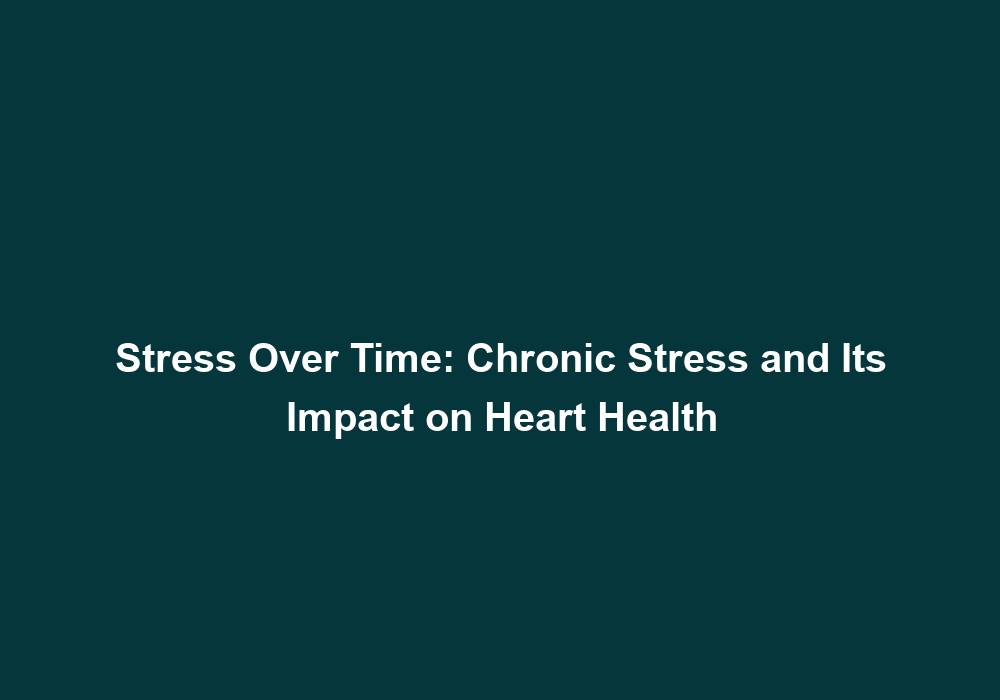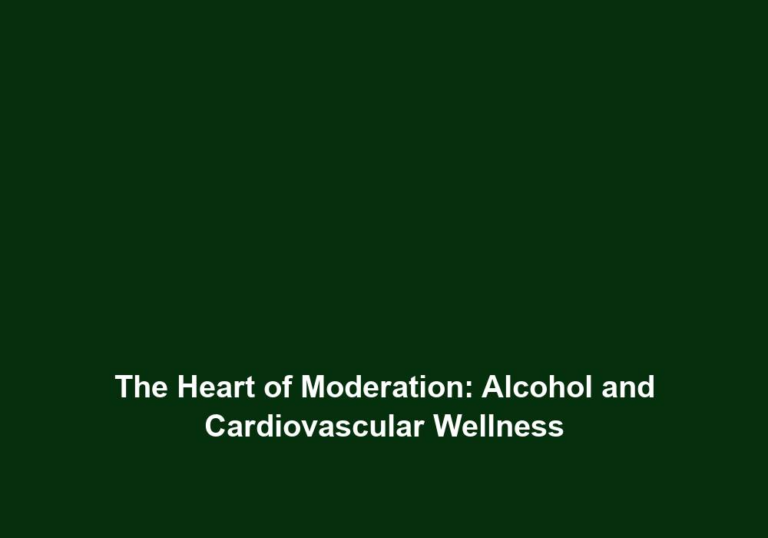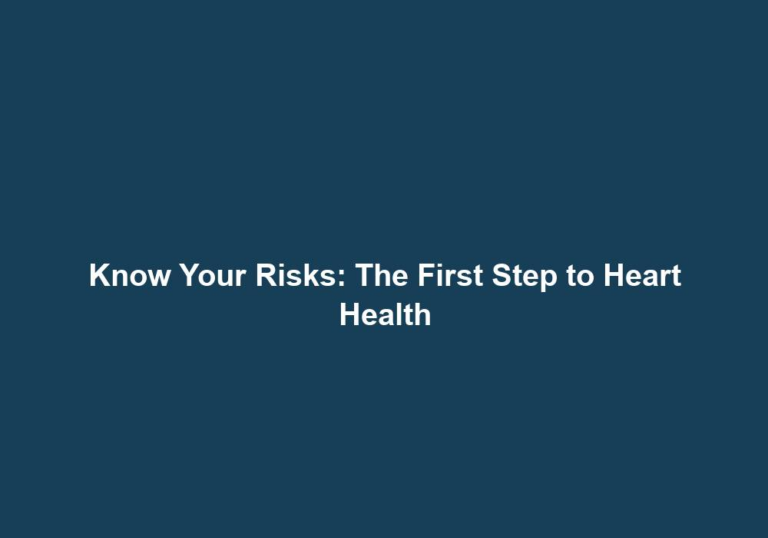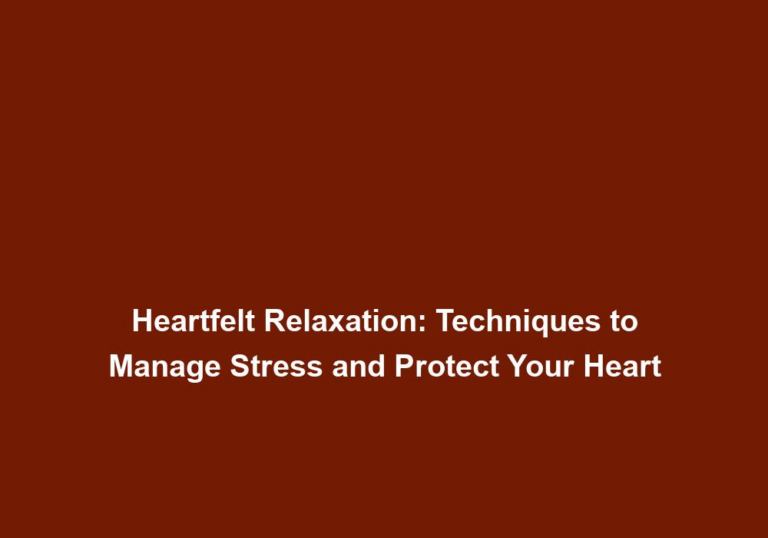Stress Over Time: Chronic Stress and Its Impact on Heart Health
Chronic stress is a prevalent issue in today’s fast-paced and demanding world. It not only affects our mental well-being but also poses a significant risk to our physical health, particularly our heart health. In this article, we will delve into the effects of chronic stress on the heart and explore ways to mitigate its impact.
Understanding Chronic Stress
Stress is a natural response to challenging situations and can be beneficial in small doses. However, when stress becomes prolonged and overwhelming, it transforms into chronic stress. Chronic stress occurs when we face continuous pressure and feel unable to cope with the demands of our daily lives. This type of stress can stem from various sources such as work-related pressures, financial difficulties, relationship problems, or health concerns.
Chronic stress can have a profound impact on our overall well-being, including our heart health. It is important to understand the specific ways in which chronic stress affects our cardiovascular system and the potential risks it poses.
The Connection Between Chronic Stress and Heart Health
Research has shown a strong correlation between chronic stress and an increased risk of cardiovascular diseases, including heart attacks and strokes. The constant release of stress hormones, such as cortisol and adrenaline, during prolonged periods of stress can have detrimental effects on the heart.
Impact on Blood Pressure
Chronic stress can lead to elevated blood pressure levels. When we are stressed, our body releases hormones that temporarily increase our blood pressure. While this response is normal in acute stress situations, chronic stress keeps our blood pressure consistently elevated, putting strain on the cardiovascular system. Over time, this may contribute to the development of hypertension, a major risk factor for heart disease.
To mitigate the impact of chronic stress on blood pressure, it is important to incorporate stress management techniques into our daily lives. Engaging in activities that promote relaxation, such as deep breathing exercises, meditation, yoga, or tai chi, can help reduce stress levels and lower blood pressure. Regular physical activity, such as walking, jogging, or swimming, has also been shown to significantly reduce stress and contribute to overall heart health.
Influence on Cholesterol Levels
Another way chronic stress affects heart health is by impacting our cholesterol levels. Stress has been found to increase levels of bad cholesterol (LDL) and triglycerides, while simultaneously decreasing levels of good cholesterol (HDL). This imbalance in cholesterol levels can lead to the buildup of fatty deposits in the arteries, narrowing them and increasing the risk of heart disease.
To counteract the negative effects of chronic stress on cholesterol levels, it is important to adopt a healthy lifestyle. This includes eating a balanced diet rich in fruits, vegetables, whole grains, and lean proteins. Avoiding excessive consumption of processed foods, sugary snacks, and drinks is crucial. Additionally, limiting alcohol intake and quitting smoking are essential, as these habits can exacerbate the negative effects of stress on the heart.
Disrupting Heart Rhythm
Chronic stress can also disrupt the normal rhythm of the heart, leading to irregular heartbeats or arrhythmias. Stress-induced arrhythmias can be potentially dangerous, as they may increase the risk of blood clot formation and trigger more severe cardiovascular events, such as heart attacks or strokes.
To maintain a healthy heart rhythm and reduce the risk of arrhythmias caused by chronic stress, it is important to prioritize stress management techniques. Engaging in activities that promote relaxation, such as deep breathing exercises, meditation, or yoga, can help regulate the heart’s rhythm and reduce the negative impact of stress on cardiovascular health.
Promoting Unhealthy Behaviors
When experiencing chronic stress, individuals often turn to unhealthy coping mechanisms, such as smoking, excessive alcohol consumption, overeating, or leading a sedentary lifestyle. These behaviors, coupled with the physiological effects of stress, further contribute to the risk of developing heart disease.
To mitigate the impact of chronic stress on heart health, it is crucial to adopt healthy coping mechanisms. Engaging in stress-relief techniques, such as deep breathing exercises, meditation, or yoga, can help reduce the reliance on unhealthy behaviors. Additionally, seeking support from friends, family, or professionals can provide guidance and strategies for managing stress in a healthy way.
Mitigating the Effects of Chronic Stress on Heart Health
While it may not be possible to completely eliminate stress from our lives, there are strategies that can help mitigate its impact on heart health. Here are some effective ways to manage chronic stress:
-
Practice Stress-Relief Techniques:
- Engage in deep breathing exercises, meditation, yoga, or tai chi.
- Incorporate regular physical activity, such as walking, jogging, or swimming.
-
Prioritize Self-Care:
- Take time for yourself and engage in activities you enjoy.
- Engage in hobbies, spend quality time with loved ones, and ensure you get enough sleep.
-
Adopt a Healthy Lifestyle:
- Eat a balanced diet rich in fruits, vegetables, whole grains, and lean proteins.
- Avoid excessive consumption of processed foods, sugary snacks, and drinks.
- Limit alcohol intake and quit smoking.
-
Seek Support:
- Reach out to friends, family, or professionals for support.
- Share your concerns and seek guidance to alleviate stress and gain coping strategies.
-
Practice Time Management:
- Organize your time effectively and set realistic goals.
- Prioritize tasks, delegate when necessary, and learn to say no when overwhelmed.
- Efficient time management can reduce stress levels and improve overall well-being.
-
Consider Therapy or Counseling:
- If chronic stress significantly impacts your life and well-being, seek professional help.
- A therapist or counselor can provide valuable tools and techniques to manage stress effectively.
Conclusion
Chronic stress undoubtedly poses a severe threat to heart health. By understanding the connection between chronic stress and cardiovascular diseases, we can equip ourselves with the knowledge needed to take proactive steps in reducing stress and protecting our hearts. Implementing stress management techniques, adopting a healthy lifestyle, and seeking support are crucial in maintaining both mental and physical well-being. Remember, taking care of your heart starts with managing your stress levels.







